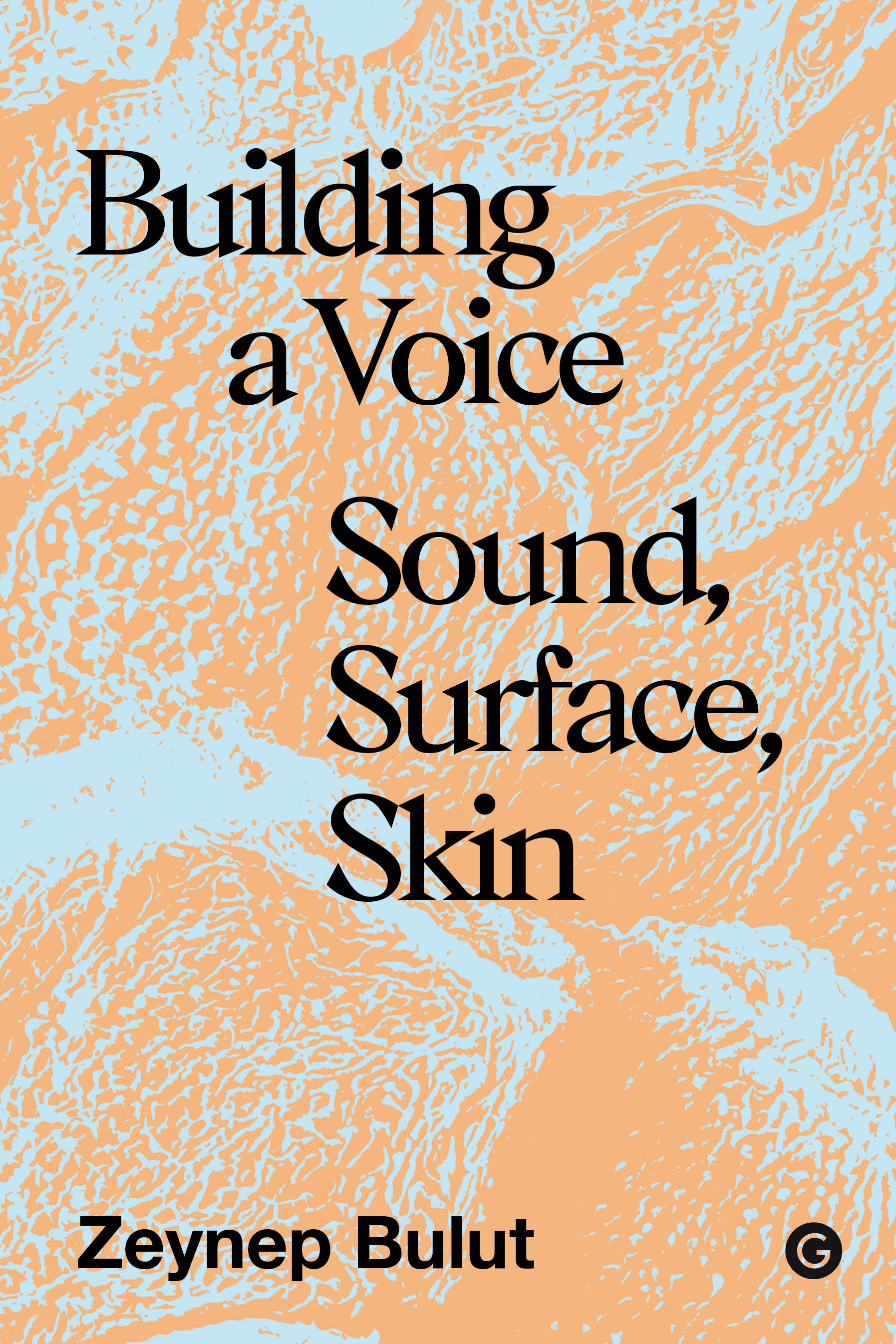Building a Voice
Sound, Surface, Skin
Zeynep Bulut
Publication
On the emergence, embodiment, and mediation of voice as skin.
How do we build or make a voice together? Can we imagine the voices we make in the form of a skin, a multi-sensory interface that behaves both as a boundary and as a point of connection? What does such a voice capacitate in times of crises and uncertainties?
In Building a Voice: Sound, Surface, Skin, Zeynep Bulut explores these questions. She examines the multi-sensory and collective forms of voice making in experimental music, sound and media art in conversation with the use of voice in creative interventions for environmental crisis, experiences of voice hearing, and digital technologies of artificial and tactile speech.
Through this conversation, she points to two key terms: plasticity of voice, and non-dialogue. Plasticity of voice indicates both malleable and resistant aspects of voice. Non-dialogue refers to cross-sensory, non-dyadic, and distributed modes of interaction across both humans and nonhumans. The plasticity of voice and the non-dialogue, Bulut argues, encourage us to think about voice in the form of a skin, a surface that both connects and differentiates, without being limited to human body or labels of verbal language.
Voice-as-skin, in effect, prompts us to reflect on both individual and collective, concrete and emergent, and uncertain and shared aspects of voice and speech, as well as to pace and revisit our conceptions of communication, intersubjectivity, connectivity, understanding and empathy.
Building a Voice is powerful and compelling and an important contribution to voice studies and sound studies more broadly.
This impressive book presents a radically new and at times breathtaking conception of vocality, one that transcends all borders separating the material from the performative, the audible from the tactile, the literal from the metaphorical, the human from the nonhuman.
A highly original approach that immediately intrigues the reader.
